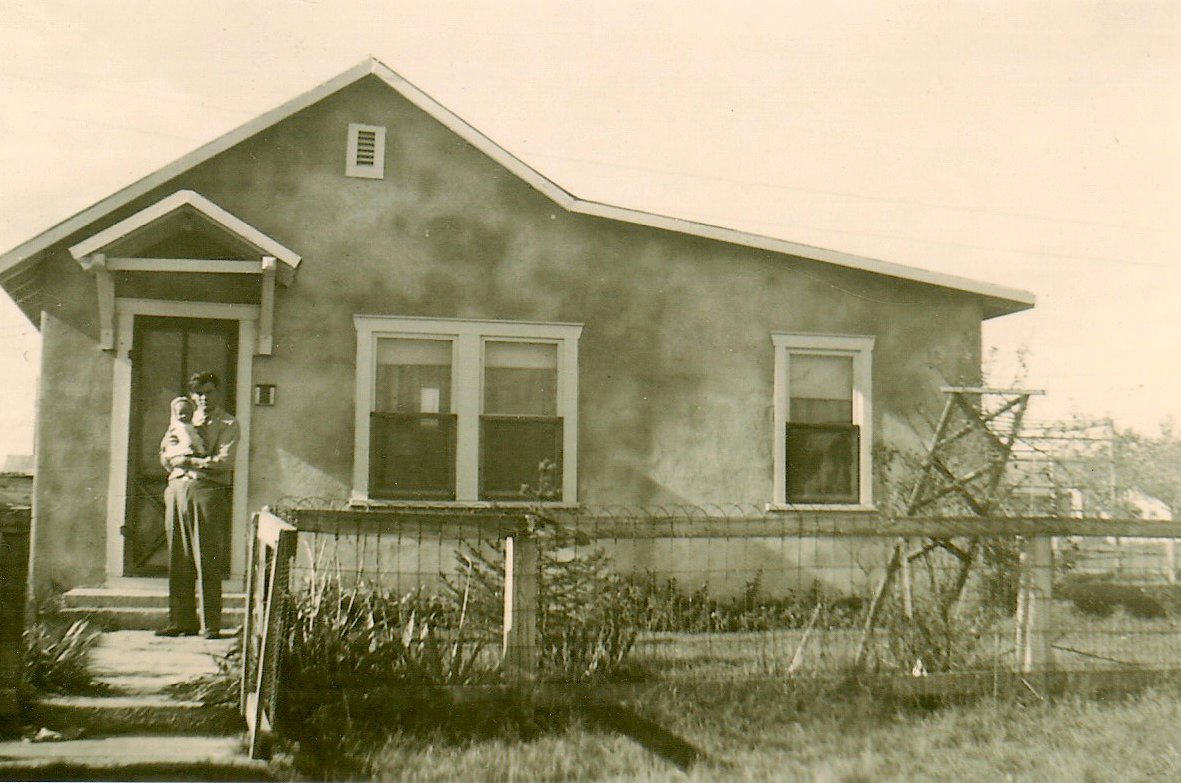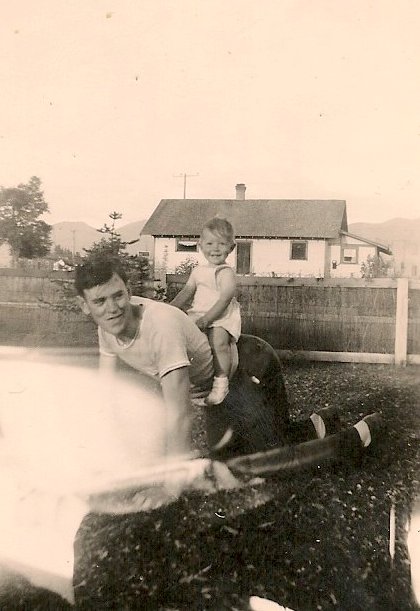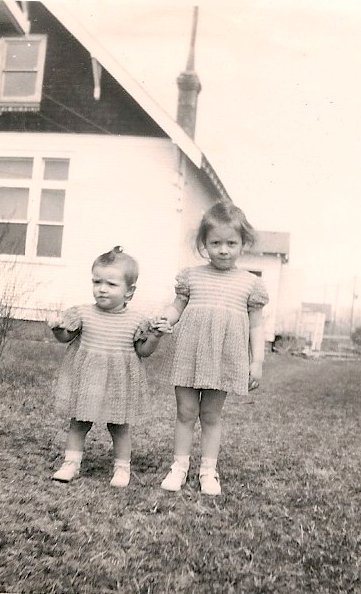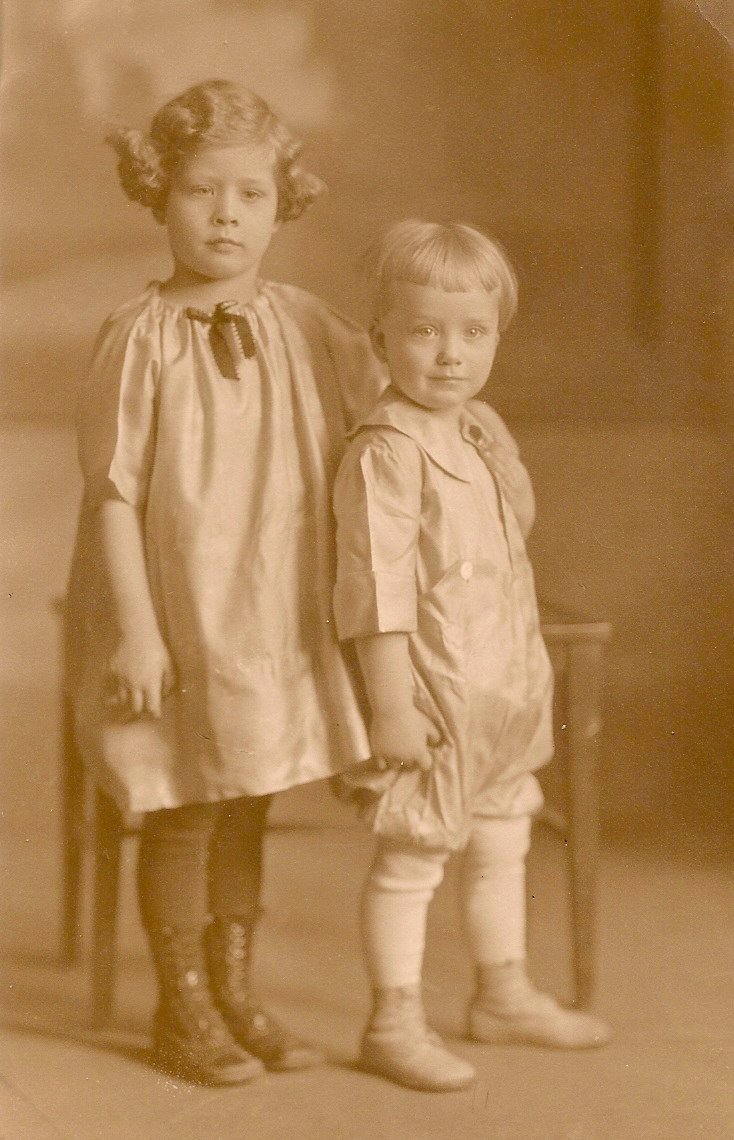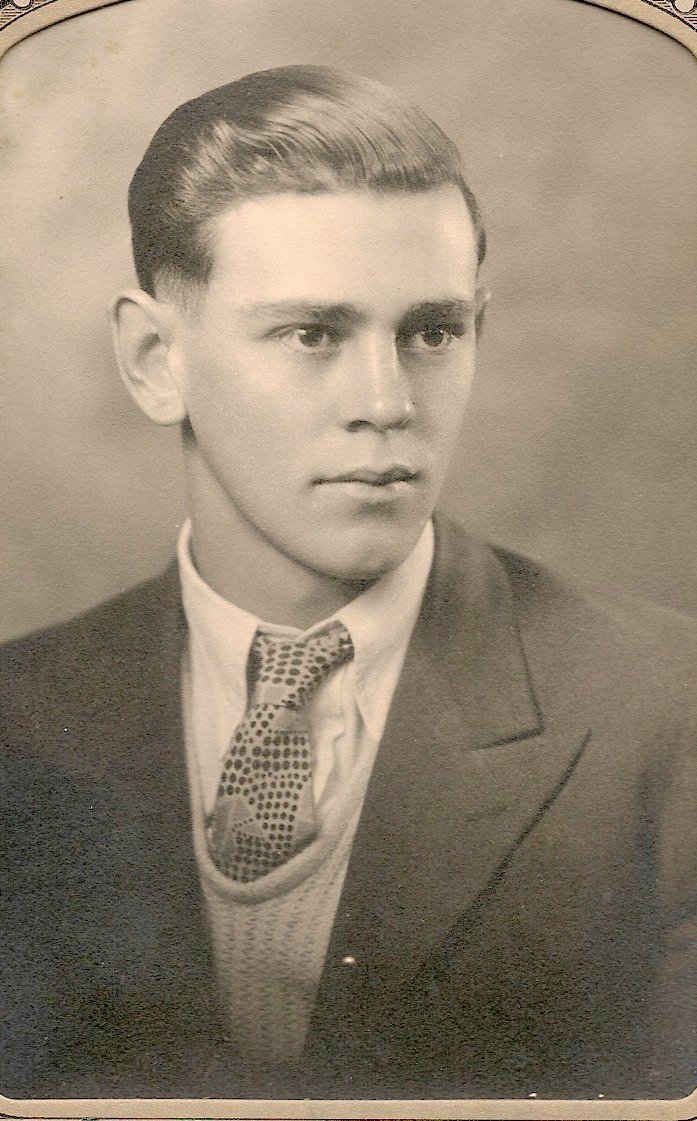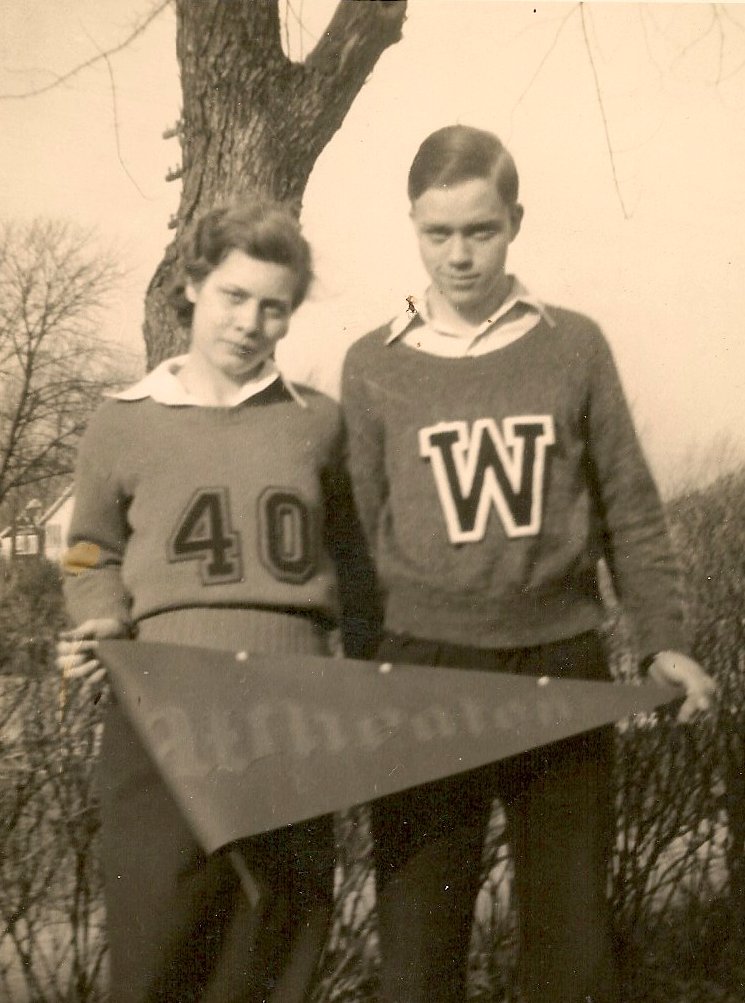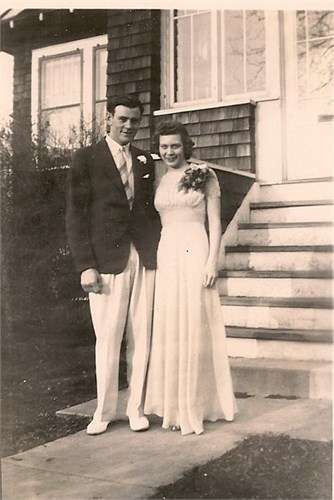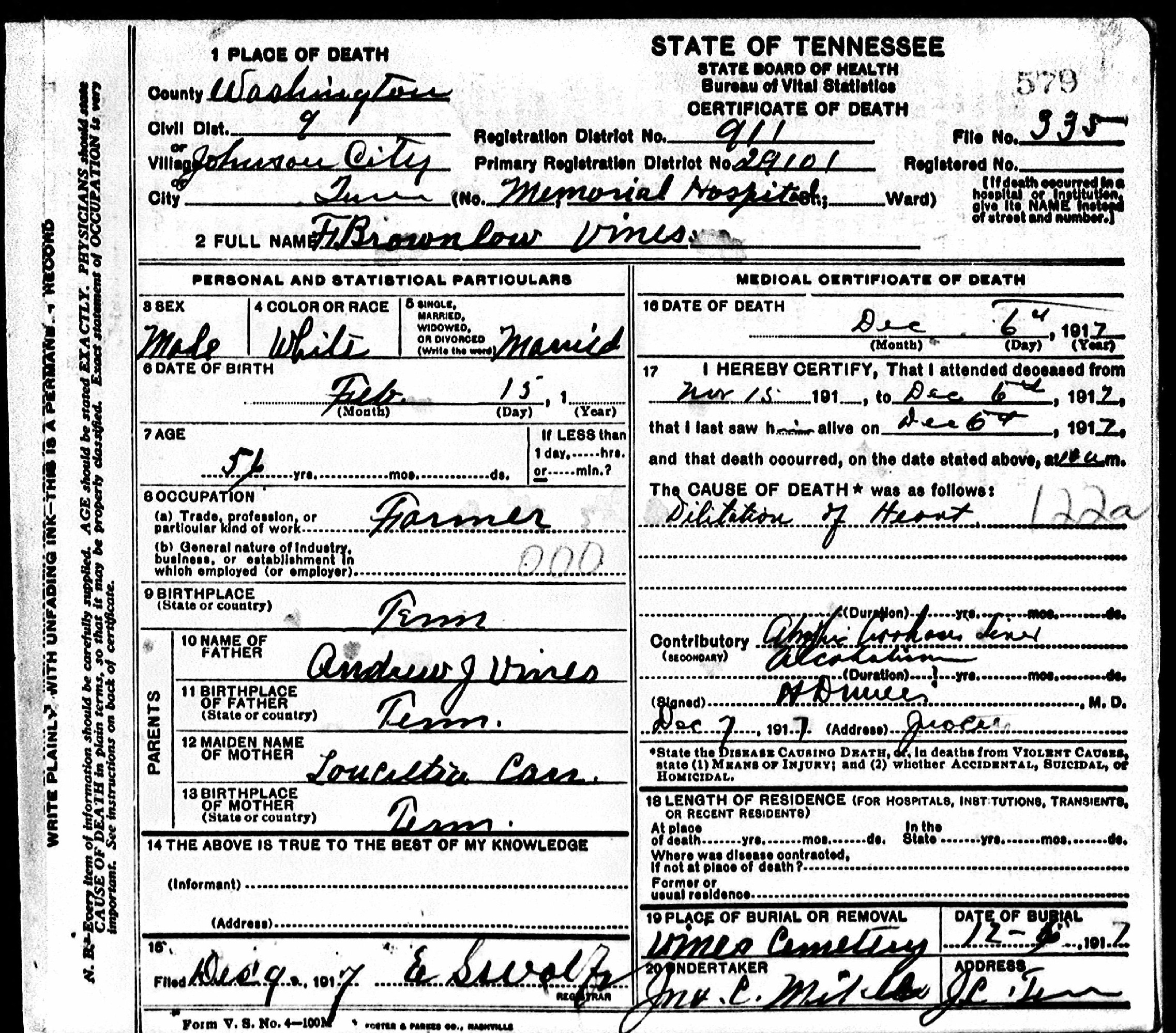Matrilineal Monday--Montana, WWII and a Schlitz Sign: the young married life of Vickie and Harry Buerer
/Harry, Vickie, and Peggy Buerer
My maternal grandparents yearned for the mission field in Africa. This longing led them to Wheaton College, and I firmly believe this desire brought them together in marriage. They married on September 7, 1940, at College Church in Wheaton, and I think they would have left for the Belgian Congo on September 8 if they could have. But the mission board counseled them to wait.
World War II raged on in Europe during this time, and my grandparents needed a visa from Belgium to enter the Belgian Congo. Unfortunately, the Belgian government was in exile, and my grandparents didn't know where to apply. Harry and Vickie decided to live in California to wait. But then Harry lost his job as a carpenter. Pastor Paul Jackson, the minister of Harry's boyhood church, recommended Harry take a job as a minister at a small church in Polson, Montana. So Harry and Vickie packed their belongings into a trailer they built and drove to Montana with their newborn daughter, Peggy (born on June 20, 1941 in Modesto.)
First Baptist Church, Polson, MT
The First Baptist Church of Polson, MT, had one room with a parsonage of four small rooms that had no bathroom and one faucet of cold water in the kitchen. They received $10 a week from the Sunday offering, but if less came in, they had to accept what had been tithed. One week during the winter brought a little over $3. Because the salary was so small, Harry and Vickie decided to leave the church in Montana because it wouldn't cover the birth of their next baby (my mother.) They packed up and headed back to Illinois, stopping at least once a day to fix a flat tire. Harry got a job in Chicago in a defense plant and enrolled in the Moody Bible Institute for evening classes. They found an apartment in Villa Park over a tavern. My grandmother writes "We didn't need a night light because there was a big red Schlitz sign outside our bedroom window. A jukebox in the tavern played constantly until the tavern closed each night at 2:00 am. The two songs we remember hearing over and over again were "I'm Dreaming Tonight of My Blue Eyes" and "Praise the Lord and Pass the Ammunition." My mother, Nancy, was born on April 15, 1943, and Harry and Vickie moved back in with Vickie's parents.
Harry, Vickie, Peg & Nancy Buerer. June 13, 1943
The church in Polson couldn't find a pastor and asked Vickie and Harry to return. They made arrangements with the Montana Baptist Fellowship and became missionaries with them. This time, Vickie and Harry were well compensated, bringing in $125 a month. They stayed in Montana another year and left in May 1945.
Finally, five and a half years after they married, Harry and Vickie received their visa for the Belgian Congo and flew across the sea to Africa. Where more adventures awaited...



